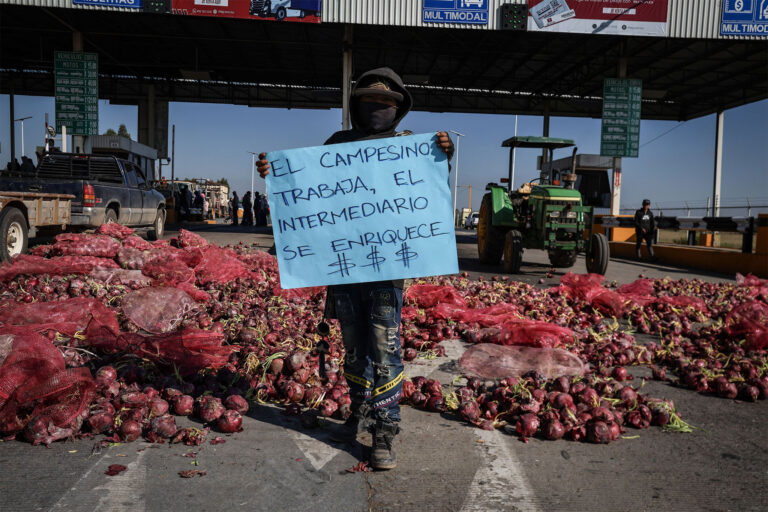Let’s Talk About Migration
This editorial by Diego Torres appears as the introduction to the August 2025 issue of Hablemos de Migración, a newsletter on migration issues published by the Frente Amplio de Mexicanos y Migrantes. We encourage you to subscribe. The English version of the August 2025 issue is available for download.

To talk about migration is to talk about how, since 1986 with the so-called Amnesty of ’86 (Simpson Rodino Act), multiple bipartisan immigration reforms have been attempted in the United States. However, none have been as blatantly regressive as the current proposal, which cynically seeks to impose a system of modern slavery under the guise of “dignity” for migrants.
Talking about migration means analyzing the recent introduction of the “Dignity Act” (HR 4393), spearheaded by Congresswomen María Elvira Salazar (Republican from Florida) and Verónica Escobar (Democratic from Texas). Although the press presents it as a serious proposal, its content makes clear the structural disdain of Republicans
and Democrats toward the migrant community.
Talking about migration also requires exposing the five “principles” this law seeks to establish: stopping irregular migration, reforming the asylum system, offering a “dignified solution” to those already living in the U.S., protecting American workers, and ensuring the country’s economic growth. Behind these principles lies a logic of exploitation and subjugation.

Talking about migration requires acknowledging that, although this law is unlikely to prosper, its proposals reflect a dominant vision in the U.S. government: a policy of supremacy and contempt toward millions of migrants who have lived for decades in conditions of invisibility and precariousness.
Talking about migration confronts us with the hypocrisy of rhetoric that claims to want to curb “illegal” migration while maintaining interventionist policies that expel entire communities from their countries of origin. Criminalizing migration remains a profitable business.
Talking about migration also leads us to denounce the dismantling of the asylum system. This law seeks to deny protection to those who do not represent an economic benefit, stripping this mechanism of its humanitarian and legal meaning. Talking about migration exposes the insult contained in the supposedly “dignified solution” offered by this law. It would force migrants to pay $7,000 in fines, plus 1% of their salary for life, without access to benefits, institutionalizing abuse.
Talking about migration reveals a brutal ideology: blaming migrants for the country’s structural problems while simultaneously designing policies to exploit and subjugate them.
Talking about migration reveals how this exploitation is being disguised with hollow promises to protect jobs and strengthen the economy. Everything would be financed by the sweat and effort of migrants themselves, not by
taxes on large fortunes.
Talking about migration reveals a brutal ideology: blaming migrants for the country’s structural problems while simultaneously designing policies to exploit and subjugate them.
Talking about migration confronts us with the cynicism of claiming this law is based on “biblical principles.” Nothing could be further from the message of Jesus of Nazareth, defender of the oppressed. This law is closer to punishment and
profit than compassion.
Talking about migration exposes the project’s essence: establishing a legalized regime of modern
slavery. It not only criminalizes but also exploits migrants for the benefit of a business elite that actively participated in its drafting.
Talking about migration is, ultimately, an invitation to resist. Neoliberalism seeks to reinvent itself through new forms of exploitation, but from our communities, from our struggles, we affirm that dignity is not imposed from above: it is built from below.
-
People’s Mañanera October 22
President Sheinbaum’s daily press conference, with comments on rainfall emergency response, aid delivery, passenger trains, taxation and the fight against invoice mills.
-
National Campesino Confederation Anticipates Agriculture Budget Cuts
Members of the CNC attended the Listening to the Voices of the Field forum at Mexico’s Chamber of Deputies to address their concerns about the budget directly to legislators
-
Campesinos Ride Again
Last week’s strike by agricultural producers against the USMCA and the uncontrolled entry of subsidized grains from the US is part of a fight for Mexican food sovereignty that demands the government’s full attention.




